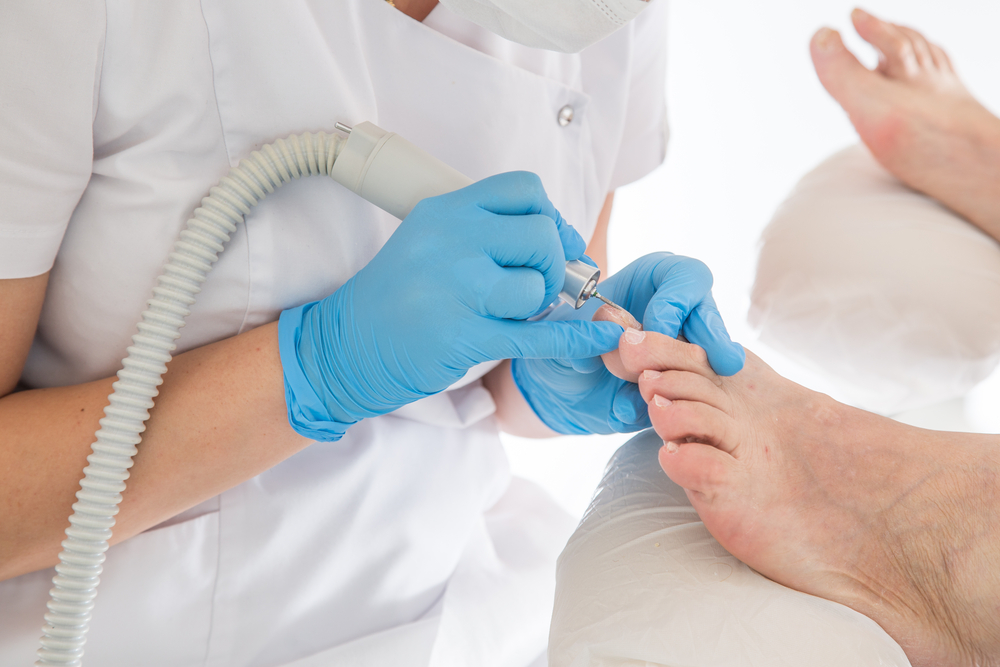Everything You Need To Know For Treating Nail Fungus
Everything you need to know for treating nail fungus
Nail fungus is a common condition that results in some unsightly changes in the toenails or the fingernails. The medical term for this condition is onychomycosis or tinea unguium. It is commonly related to poor hygiene. However, a variety of other reasons could also be responsible for causing a fungal infection in the nails.
Below is some information about nail fungus, its causes, the treatment options, and more.
What are the symptoms of a nail fungal infection?
For treating any condition properly, observing the symptoms and signs is the first step toward curing it.

- Thick, brittle, and crumbly nails.
- Ragged, distorted, and dull nail texture.
- Dark or yellowish discolorization of the nail/nails.
- Hyperkeratosis, which is scaling under the nail.
- Yellow or white streaking on the nails.
- Yellow spots under the nail.
- Nail separating from the nail bed.
- Nail emitting a foul odor.
- Pain in the nails and discomfort.
What are the risk factors for nail fungus?
Though anyone can get a nail fungal infection, men are more prone than women, and it is more commonly observed in the elderly than the young.
- Reduced blood circulation.
- Slow growing nails.
- Heavy perspiration.
- A family history of fungal infection.
- Moist and/or humid work environment.
- Using unclean socks and shoes, as well as wearing them for long hours.
- Prolonged use of artificial nails.
- Walking bare feet in damp public places, such as shower rooms, gyms, and swimming pools.
- Coming in contact with someone suffering from a fungal infection.
- Previous nail infection or injury.
How to prevent a nail fungal infection?
Prevention is certainly better than cure. Therefore, rather than finding a nail fungus cure after you get infected, you should find ways to prevent it from happening in the first place. Following are some ways you can count on for preventing nail fungal infection:
- Wash your hands and feet regularly, and do not walk bare feet in pool areas or locker rooms.
- Trim nails, smooth their edges, and file down thickened areas.
- Disinfect your nail clippers after use every time and moisturize your nails after washing.
- Change your socks every day. Wear sweat-absorbing socks and shoes made of breathable material. If possible, discard old shoes or maintain them by using antifungal powders and disinfectants.
- Ensure manicure tools at the salon are appropriately sterilized before use.
- Take regular breaks from using a nail polish and artificial nails.
How is a nail fungal infection treated?
- As a part of nail fungus treatment, an over the counter (OTC) anti-fungal topical medication will be prescribed by the doctor. This can be applied on the infected nails. Repeated applications of the medication are required.
- Additional, medicines may also be prescribed in some cases.
What are the best home remedies for curing nail fungal infection?
The top 5 home remedies that could help in curing a nail fungal infection are:
- Vinegar – A commonly known toenail fungus remedy vinegar helps in killing the fungi causing the infection. You simply have to soak your affected nails in the vinegar and warm water solution every day for about 20 minutes.
- Listerine – Menthol, thymol, and eucalyptus are the ingredients of a Listerine mouthwash. They have anti-bacterial and anti-fungal properties that may work wonders for treating toenail fungus.
- Baking soda – Also known as sodium bicarbonate, baking soda has anti-fungal properties. It is effective against many fungal species that are involved in toenail fungus. Just make a paste using baking soda and water and apply it on the affected nails. In addition to this, you can add some baking powder to water in a bucket and then soak your feet in it.
- Tea tree oil – It is among the best home remedies for toenail fungus, as this essential oil has significant anti-fungal, anti-bacterial, and anti-inflammatory properties.
- Ozonized sunflower oil – A topical application of this oil twice every day can help you get rid of a fungal nail infection.

